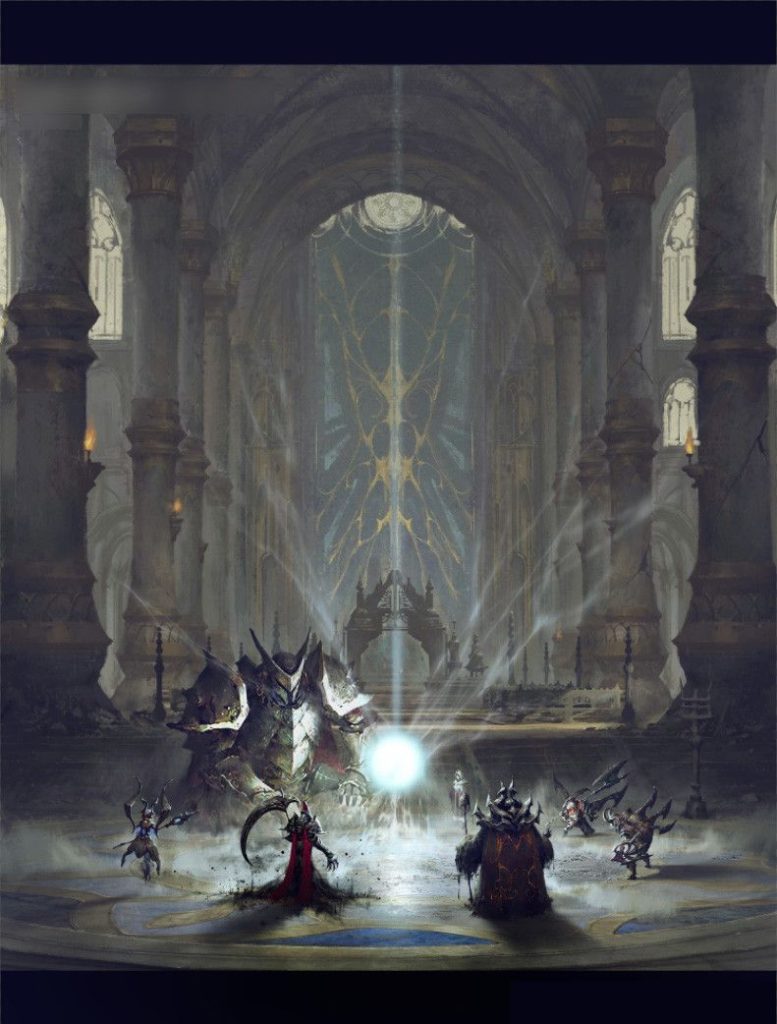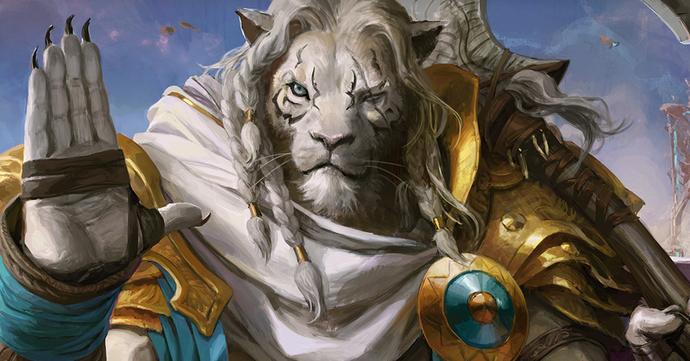
The Parliament of Concordance

As a group, celestials champion the betterment of the multiverse and encourage the spread of harmony and freedom, both for individuals and for societies. How best to achieve these goals is a matter of debate and has mated some ideological rifts among the various celestial races, as noted above. But unlike fiends, who use malice and hate to foment wars among their own kind, celestials do not turn on each other. To take up arms and strike down another good being is simply unheard of. So while they do have disputes, the celestials have nothing equivalent to the eternal fiendish battle-though occasional rumors of holy wars on the Upper Planes should give anyone pause for concern. But where the fiends have their Blood War, their upper-planar counterparts have the Celestial Concordance–a pact between the races to aid one another should any external force seriously threaten the Upper Planes. The Concordance allows the celestials to present a single harmonious front against all the evil in the multiverse.
Periodically, representatives of the various celestial races gather to plan a defense against a threatened invasion, or merely to discuss the status of their planes. That assemblage is called the Parliament of the Concordance, or simply the Parliament. When it convenes, representatives of the celestial races, aasimon, archons, asuras, eladrins, and guardinals along with representatives from the races of dragonkind, elementals and mortals debate the best way to implement the Concordance and what role each race should play. These meetings, which are never recorded in any written form, are more monumental and awe inspiring than any prime material mortal can imagine. Chairing each gathering and coordinating the defense of the Upper Planes is a figure known as the Arch-Penitar. Zora Sebirati, a solar aasimon in the service of the Lathander, currently holds this office, although the representatives elect a new Arch-Penitar every three centuries or so. Some celestials believe that the Concordance is the only hope of destroying evil in the multiverse, but there are others who believe that the sheer magnitude of such a conflict would tear apart the very fabric of the planes. This debate often rages during meetings of the Parliament, as the most fervent celestials encourage their peers to strike deep into the Lower Planes, where evil breeds like a plague. Their detractors counter that any such invasion could force an alliance perhaps temporary, perhaps not between the warring baatezu and tanar’ri, giving rise to an unstoppable force of evil. Other celestials find the very idea of destroying anything (even a fiend) less than palatable. Perhaps the most heated debate among the celestials involves the so-called Ethical Paradox-the belief that good cannot exist without evil, and that to destroy evil utterly would doom the whole multiverse.
Thus, the Concordance remains a powerful force in defense of the Upper Planes and not an excuse to launch attacks or eradicate the fiends. Meanwhile, the celestial races struggle to keep the Blood War confined to the Lower Planes, where the tanar’ri, the baatezu, and their kin can fight without compromising the rest of the multiverse.







